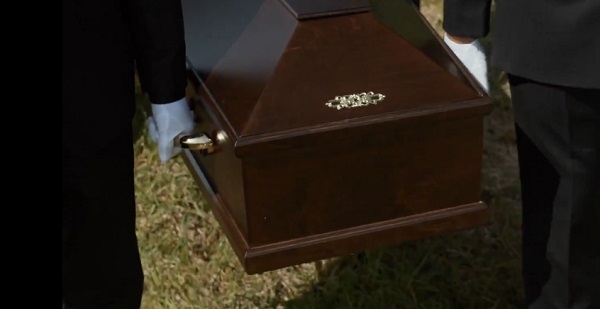MAiD
Canadian psychiatrist sounds alarm over Trudeau gov’t plan to expand euthanasia to the mentally ill

From LifeSiteNews
” someone not dying because of their condition, such as a mental disorder alone, seeking death is, by definition, suicidal. “
Dr. Harvey Chochinov, the well known professor of psychiatrisy from the University of Manitoba and the developer of dignity therapy, wrote an article that was published in the National Post on December 30, 2023 titled: Intensive compassionate caring — not MAiD — is the most effective way to address mental illness.
Chochinov writes:
It’s time to put the brakes on Medical Assistance in Dying (MAID) in Canada for those whose sole underlying medical condition is mental illness.
The federal government has tasked the Special Joint Committee on Medical Assistance in Dying to determine if Canada is ready to extend MAID eligibility, starting in March 2024, to patients with mental illness alone. Despite those convinced it is time, and safe, to launch what amounts to ‘psychiatric euthanasia,’ the special committee must pay attention to a murmur of protest that has grown to a roar: Ottawa, we’ve got a problem.
Current MAID eligibility requires a person have a grievous and irremediable medical condition. Unlike some cancers, and many neurodegenerative disorders, no mental disorder can be described as irremediable. To be sure, there are individuals whose mental affliction won’t improve, despite myriad treatments or psychosocial interventions. But there is currently no way to predict which patients won’t get better.
Studies of prognostic accuracy show psychiatrists are wrong half the time. I have cared for patients struggling with chronic suicidality; patients I worried might one day take their lives. I recall a woman with mind-numbing depression, who teetered precariously between life and death. One day, after years of countless drug trials, hospitalizations, electroconvulsive therapy, and various psychosocial interventions, she arrived for her appointment — three weeks into starting a new antidepressant — with a grin on her face.
‘The door is purple,’ she declared. I told her the door had always been purple, to which she replied, ‘I know, but now I care.’
Before that moment, no one — not me, not her friends or family and not anyone on The Special Joint Committee on Medical Assistance in Dying, nor any MAID assessor — could have predicted her recovery.
Chochinov then states that intensive, unwavering, compassionate care and caring — not MAID — offers the most effective way to address this kind of suffering.
The other reason not to launch psychiatric euthanasia is our inability to determine suicidality from those requesting MAID whose sole underlying medical condition is mental illness. According to the Canadian Association for Suicide Prevention, someone not dying because of their condition, such as a mental disorder alone, seeking death is, by definition, suicidal.
Similarly, the first item listed by the American Association of Suicidology differentiating physician hastened death and suicide is the patient must be dying. That certainly does not characterize patients who are mentally ill.
The euthanasia expansionists told the Special Joint Committee on Medical Assistance in Dying that “suicidality and having a reason to want to die are not at all the same.” Chochinov responds by stating:
We can say ‘six’ and ‘half-dozen’ are not the same as many times as we like. If we repeat it frequently, consistently and without equivocation, it might even sound convincing, but that doesn’t make it true.
Patients struggling with suicidality often have a reason to want to die, based on, for example, self-loathing, feeling like a burden or becoming worn down pursuing care and support that could sustain them. In those instances, the line between MAID and suicide simply vanishes.
Avoiding discrimination does not mean everyone is treated the same, but rather, that everyone gets equal access to what they need to thrive.
Time and again, committee members have asked witnesses when Canada’s psychiatric euthanasia program can be launched. I would suggest they behave like NASA. When a potentially catastrophic problem is identified before blast-off, space engineers don’t set an arbitrary new launch date, no more so than Health Canada announces a random release date of a new drug discovered to have unacceptable side-effects.
Ottawa, we have a problem.
The federal government would be well advised to scrap this mission. But if it insists on moving forward, launch should proceed only when the problems are solved, and not a moment sooner.
Reprinted with permission from Euthanasia Prevention Coalition.
Health
Lack of adequate health care pushing Canadians toward assisted suicide

From LifeSiteNews
The family of an elderly man is speaking out about the terrible hospital conditions that led their father to request euthanasia before he died of natural causes.
The family of Cleo Gratton, an 84-year-old retired diamond driller who died earlier this month in Chelmsford, Ontario, of natural causes after being approved for assisted suicide, is speaking publicly about their appalling experience in the Canadian healthcare system.
According to the CBC, the elderly man “told his family he would rather die than go back to Health Sciences North in Sudbury,” and that a recent stay there found Gratton, who was suffering from heart disease and kidney failure, spending one night in the emergency room and then being transferred to a bed sitting in the hallway on the seventh floor.
“There were no lights, all the bulbs in that hallway had been completely removed,” his daughter, Lynn, told the CBC. “The only light we had was almost like a desk lamp that had been bolted to the wall. Patients are passing by, nurses are going by, no privacy, no compassion, no dignity.” The visit took place in mid-October, after which Gratton decided to apply for “medical aid in dying,” or assisted suicide.
Lynn said that nurses had to use headlamps to inspect her father’s feet, and that the experience was “just one thing after another and it really opened our eyes to what’s going on in our hospitals. My dad said, ‘Push, push, push for change. Make people aware of what’s gong on. Open the discussion, bring it to your MP, your MPP, keep going straight up.”
His family is now honoring his wishes to speak out about his experience. The doctors and nurses, Lynn emphasized, were “amazing,” but she noted that they seem overworked. “Why are they still taking in patients if we have an overcrowding issue and they have no place to put these people?” she said.
Cleo Gratton, who died of natural causes surrounded by his family before he could go through with assisted suicide, is just the most recent of many examples of Canadians opting for assisted suicide because they could not access the care that they actually desired.
In Quebec last year, Norman Meunier, a quadriplegic man, developed bedsores after four days left on an ER stretcher without a good mattress. That experience combined with lack of available homecare pushed him to request, and receive, assisted suicide.
An unnamed woman in her 80s, referred to in a MAID report as “Mrs. B,” received MAID earlier this year after requesting but being denied palliative or hospice care. Instead, with her spouse burning out as the result of her care, a rushed MAID assessment was completed, and she died by lethal injection.
In 2022, 44-year-old Winnipeg woman Sathya Dhara Khovac died by euthanasia after failing to receive the homecare resources she had desperately sought. In her posthumous obituary, she said she could have had more time if she’d had more help.
In 2019, 41-year-old Sean Tagert was euthanized after spending years attempting to find and fund the homecare and resources he needed to stay in the community where his son lived. He did not want to die but felt that he had no other choice.
And, among other stories, at least four Canadian veterans were offered assisted suicide in lieu of the unavailable mental health supports they were requesting.
Stories of Canadians seeking palliative care, mental health resources, homecare, and other medical support finding that the only option available to them is assisted suicide have become routine over the past several years. Euthanasia has become a pressure valve for an overworked and under-funded healthcare system serving an aging population increasingly need of complex care — and if assisted suicide for mental illness is legalize, things will get much, much worse.
armed forces
Canadian veteran says she knows at least 20 service members who were offered euthanasia

From LifeSiteNews
Canadian Armed Forces veteran Kelsi Sheren told members of the House of Commons that he has proof of veterans being offered assisted suicide.
Canada’s liberal euthanasia laws have made the practice so commonplace that a Canadian Armed Forces (CAF) veteran has said she knows and has “proof” that no less than 20 of her colleagues were offered unsolicited state-sponsored euthanasia.
Kelsi Sheren, who is a CAF veteran, recently told MPs in the House of Commons veterans affairs committee that “over 20 veterans have confirmed being offered MAID.”
“I have the proof, and I have proof of more,” Sheren told the committee during an October 28 meeting.
Conservative MP Blake Richards asked Sheren if she was willing to provide them with evidence to affirm her allegations.
Sheren noted how the 20 veterans have given written testimonies, or actual audio recordings, of when they were offered what in Canada is known as Medical Assistance in Dying (MAiD).
“We also have other individuals who are too afraid to come forward because Veterans Affairs has threatened their benefits,” she told MPs, adding that some other veterans were even offered non-disclosure agreements along with “payouts if they were to take it.”
Veterans Affairs Canada (VAC) has told the media its “employees have no role or mandate to recommend or raise (MAid). ”
As reported by LifeSiteNews, this is not the first time reports of CAF veterans saying they were offered MAiD.
Indeed, as reported by LifeSiteNews, it was revealed last year that the federal department in charge of helping Canadian veterans appears to have purposefully prevented the existence of a paper after scandalous reports surfaced alleging that caseworkers had recommended euthanasia to suffering service members.
LifeSiteNews recently published a report noting how a Canadian combat veteran and artillery gunner revealed, while speaking on a podcast with Dr. Jordan Peterson, that the drugs used in MAiD essentially waterboard a person to death. Assisted suicide was legalized by the Liberal government of former Prime Minister Justin Trudeau in 2016.
A new EPC report has revealed that Canada has euthanized 90,000 people since 2016.
As reported by LifeSiteNews last week, a Conservative MP’s private member’s bill that, if passed, would ban euthanasia for people with mental illness received the full support of the Euthanasia Prevention Coalition (EPC).
-

 Crime22 hours ago
Crime22 hours agoCBSA Bust Uncovers Mexican Cartel Network in Montreal High-Rise, Moving Hundreds Across Canada-U.S. Border
-

 Environment23 hours ago
Environment23 hours agoThe Myths We’re Told About Climate Change | Michael Shellenberger
-

 Energy2 days ago
Energy2 days agoIt should not take a crisis for Canada to develop the resources that make people and communities thrive.
-

 Dr John Campbell1 day ago
Dr John Campbell1 day agoCures for Cancer? A new study shows incredible results from cheap generic drug Fenbendazole
-

 Alberta2 days ago
Alberta2 days agoFederal budget: It’s not easy being green
-

 Business2 days ago
Business2 days agoWill Paramount turn the tide of legacy media and entertainment?
-

 Artificial Intelligence21 hours ago
Artificial Intelligence21 hours agoAI Faces Energy Problem With Only One Solution, Oil and Gas
-

 Health21 hours ago
Health21 hours agoLack of adequate health care pushing Canadians toward assisted suicide








